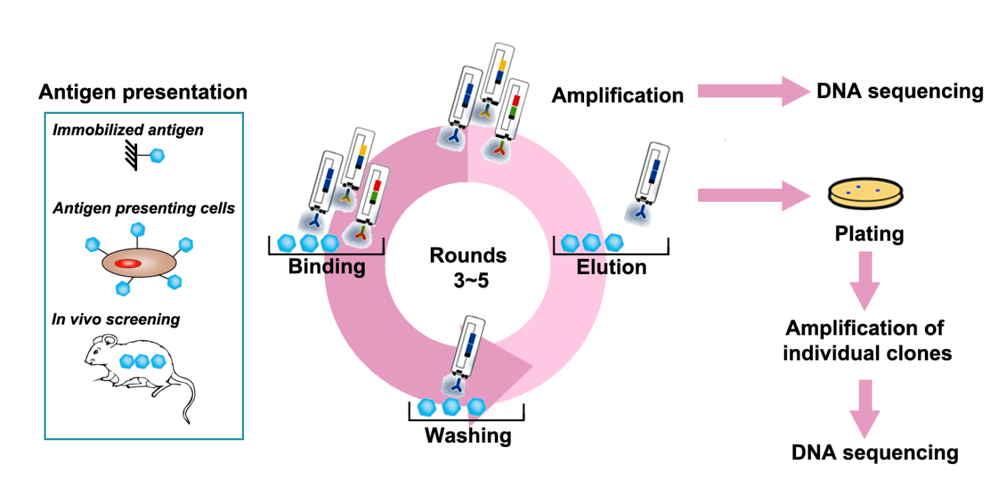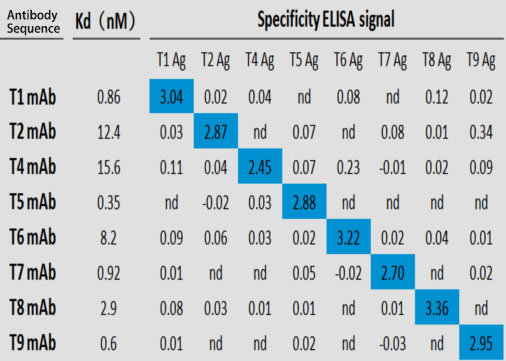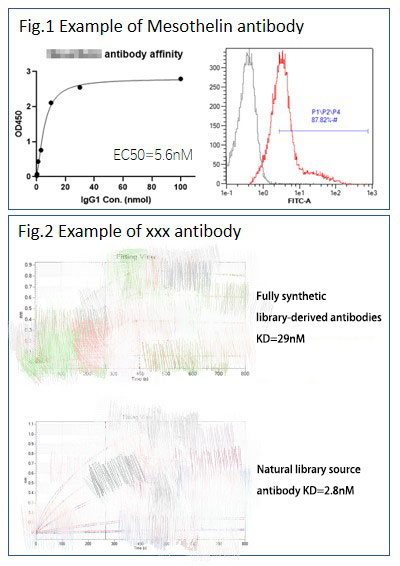Cases
High-Affinity Antibody Screening
Background:
Antibody screening is a crucial step in developing monoclonal antibody drugs, bispecific antibody drugs, and cell therapies such as CAR-T. Identifying high-affinity and highly specific candidate antibodies greatly increases the likelihood of successfully developing these drugs. The antibody library screening technique utilizes the specificity between antigens and antibodies, by exposing the target antigen in the antibody library to screen for specific antibodies against the antigen. ABLINK provides high-affinity antibody screening strategies that utilize prefabricated antibody libraries to screen for antibodies with affinities reaching the nM level.
Service Process:
The conventional screening strategy provided by ABLINK involves displaying the target antigen ex vivo, on cell surfaces, or inside animals. After undergoing 3-5 cycles of high-throughput screening procedures (mixing, binding, washing, elution, and amplification), positive clones of high-affinity phages are obtained. DNA sequencing is performed to gain genetic information, followed by validation through ELISA or FACS. Recombinant antibodies are then prepared using mammalian cell expression.

Case presentation
The screened antibodies exhibit high specificity and only bind to their target antigens (blue box).

Figures 1 and 2: The screened antibodies demonstrate nM-level high affinity.

